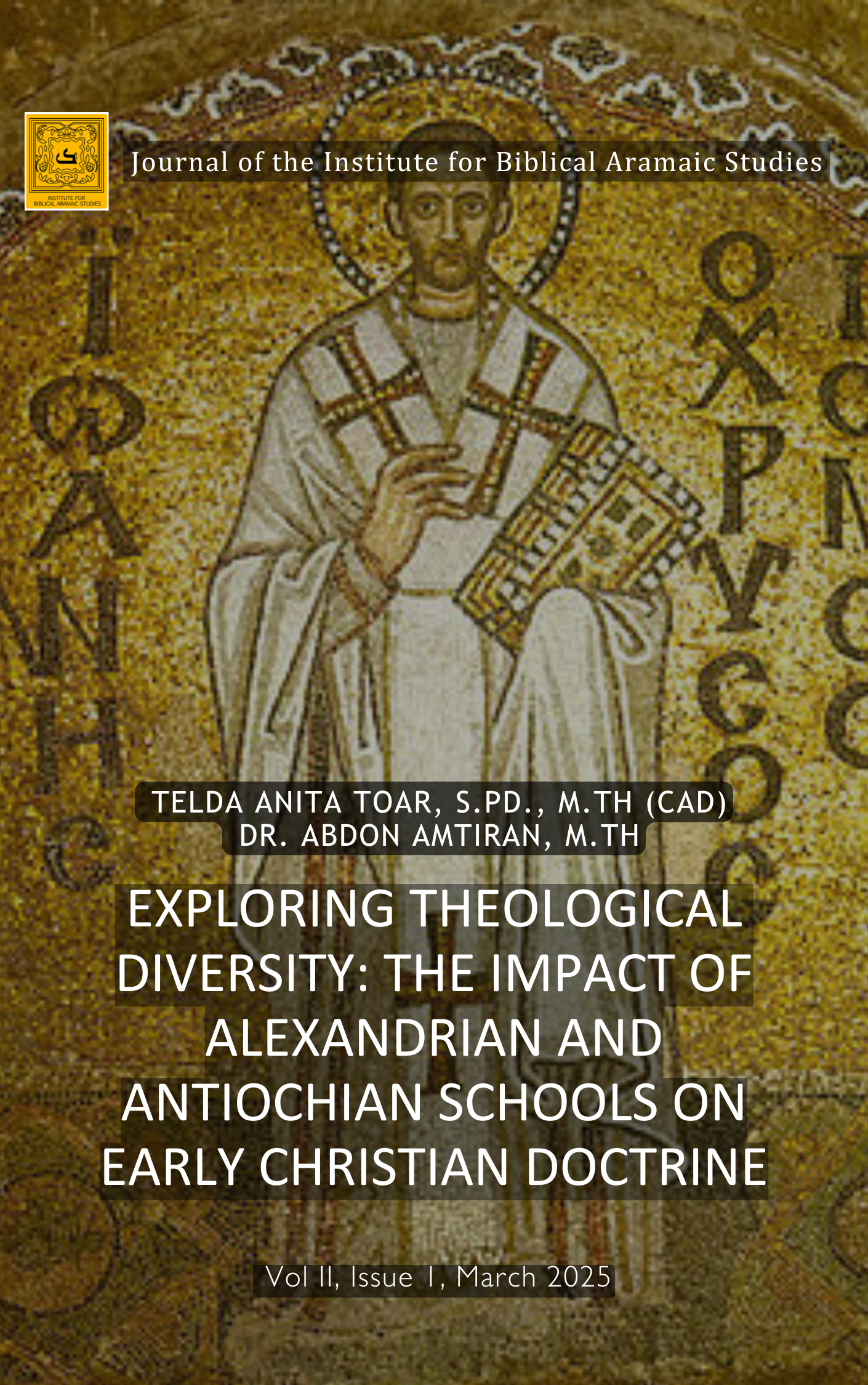Exploring Theological Diversity: The Impact of Alexandrian and Antiochian Schools on Early Christian Doctrine
Kata Kunci:
Alexandrian School, Antiochian School, Early Christian, Theological Diversity, Theological ThoughtAbstrak
This study explores the theological diversity of early Christianity through an investigation of the hermeneutics of the Alexandrian and Antiochian schools, and those of lesser-better-known traditions. Using a qualitative research design, analysis is carried out with a comparative design to examine how these schools helped establish central Christian doctrines. Primary sources, including the writings of such figures as Origen, Clement of Alexandria, and John Chrysostom, are analyzed to identify their theological perspectives. The study shows that these schools' distinctive methods not only defined early theological debates but continue to thrive today in Christian practice. The Alexandrian school's focus on allegorical exegesis led to a mystical interpretation of Scripture, while the Antiochian school's focus on historical-grammatical analysis maintained a more literal interpretation of biblical texts. The research also highlights the need to note the socio-political circumstances underpinning these theological innovations, demonstrating how outside pressures influenced the development of doctrine. Through these historical contrasts, the study emphasizes the importance of embracing a more expansive conversation between different Christian traditions in the contemporary era. By and large, this research supports a better understanding of the nuances of early Christian thought and their application to contemporary theological debates, calling for further research into minor theological traditions to enhance an understanding of their contribution towards the historic development of Christian doctrine.
Unduhan

Unduhan
Diterbitkan
Terbitan
Bagian
Lisensi
Hak Cipta (c) 2025 Journal of the Institute for Biblical Aramaic Studies

Artikel ini berlisensi Creative Commons Attribution 4.0 International License.
License Terms
The work published in this journal is licensed under the Creative Commons Attribution 4.0 International License (CC BY 4.0). This means that:
-
Attribution: You are free to share, copy, and redistribute the material in any medium or format, and to adapt, remix, transform, and build upon the material for any purpose, even commercially, as long as you give appropriate credit to the original author(s), provide a link to the license, and indicate if changes were made.
-
Non-Exclusivity: The author retains the right to use the work in other publications, presentations, or personal use, provided proper attribution is given.
-
No Additional Restrictions: You may not apply legal terms or technological measures that legally restrict others from doing anything the license permits.
-
Licensor: The original author(s) of the work are the licensor(s), who grant you the rights outlined in this license.
-
License Link: For more information on the terms of this license, please visit Creative Commons.





